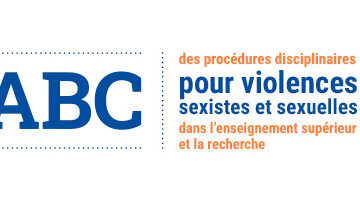Sept chercheur.e.s français.es et deux norvégiennes se sont associées pour produire un article intitulé “The domestic basis of the scientific career: gender inequalities in ecology in France and Norway“: Anne Loison, Laboratoire d’Ecologie Alpine, Université de Savoie Mont-Blan; Simon Paye Laboratoire Lorrain de Sciences Sociales, Université de Lorraine, Nancy; Agnès Schermann, Laboratoire Ecosystèmes, Biodiversité, Evolution, Université de Rennes 1; Clémentine Bry, Laboratoire Inter-Universitaire de Psychologie, Université de Savoie; Jean-Michel Gaillard, Laboratoire de Biométrie et Biologie Evolutive, Université Lyon 1; Christophe Pelabon, Department of Biology, Centre for Biodiversity Dynamics, Norwegian University of Science and Technology; Kari-Anne Bråthen, Department of Arctic and Marine Biology, UiT-The Arctic University of Norway.
Résumé:
Gender-related inequalities in scientific careers are widespread, evidenced by the attrition of women along the different stages of the promotion ladder. We studied the interwoven personal and professional trajectories of researchers in ecology and compared these trajectories between France and Norway. Given their differing welfare state policies and work/family regimes, we expected contrasts in the depth and modalities of the gender gap. We focused on the career consequences of time-use inequalities in the workplace and in the private sphere (domestic tasks and parental care). We find a more frequent assignment of women to less-valued tasks at work (e.g. teaching) and pronounced gender differences in the involvement in domestic and parental tasks, especially in France. Age at promotion and probability to be promoted differed between gender in both countries and more so in France, women being less promoted and promoted later than men. This gender gap was particularly discriminating women with children, when they were either single or with a partner who also was a researcher. These differences are mainly due to a lower scientific productivity of women when they get children. These analyses raise a number of questions on welfare policies and on the definition of academic standards of peer judgment within local employment policies in universities.
Télécharger l’article (en, 28 p.): Loison et al EERJ16-1
